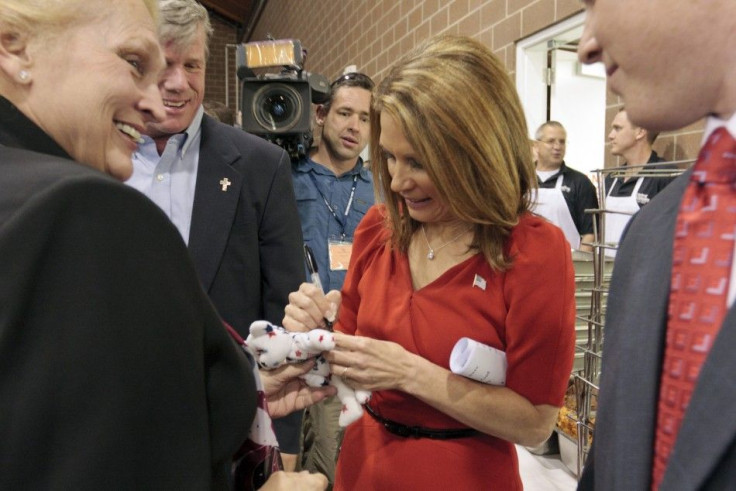Bachmann Says She Would Repeal Popular Medicare, Medicaid Programs
ANALYSIS

Michele Bachmann is calling for the repeal of parts of President Lyndon B. Johnson's Great Society -- one of the most popular legislative initiatives in American history.
The Great Society included a plethora of laws, including the landmark Civil Rights Act of 1964 and Voting Rights Act of 1965. But the parts Bachmann takes issue with are those that expanded the welfare state: Medicare, Medicaid, and expansions of Social Security and the federal food stamp program.
That's part of what I want to repeal: the failed trillions and trillions of dollars in the welfare state that aren't doing our country any good, Bachmann said in an appearance on an Iowa radio show on Wednesday.
Bachmann: An Extremely Conservative Republican
This is consistent with Bachmann's previous hard-liner positions on cutting government spending. Over the summer, for instance, she was part of a very small faction in Congress, even among Republicans, that opposed raising the debt ceiling under any circumstances, no matter what spending cuts were made in exchange.
But, while polls show that most Americans support major spending cuts to reduce the $14 trillion deficit, calling for the wholesale elimination of Medicare and Medicaid is political dynamite.
According to a March 2011 Harris Interactive poll, 88 percent of Americans support Medicare, which provides health insurance for the elderly, and 74 percent support Medicaid, which provides health insurance for the poor and disabled. Social Security is also wildly popular, with 85 percent support in the Harris poll.
In fact, support for Medicare has actually increased from 76 percent in 2005 to 88 percent in 2011.
Clearly, while Americans believe the government must make hard choices in cutting spending, they do not want Medicare on the table -- and they definitely don't agree that it and other Great Society programs aren't doing our country any good, as Bachmann said.
Bachmann, a third-term U.S. representative from Minnesota, was seen as a front-runner when she first declared her candidacy for the Republican presidential nomination. At her peak, she was polling around 15 percent, and she won the Ames Straw Poll in Iowa in August. But since then, her numbers have plummeted, reaching a low of 2 percent in a CBS News-New York Times poll released last week.
She has staked her campaign almost entirely on the Iowa caucuses, which will be held Jan. 3, but she is polling in the single digits there, too.
© Copyright IBTimes 2024. All rights reserved.





















